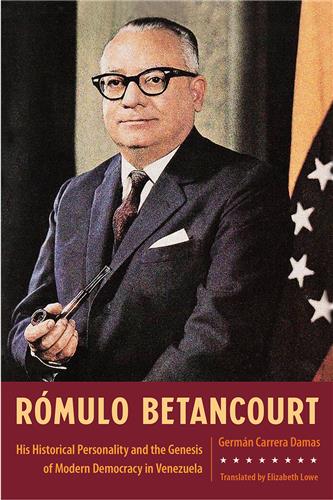The Rise of Nationalism in Venezuela
Jonathan Eastwood
Eastwood offers a novel account of the rise of nationalism in Venezuela and the broader Hispanic world. Beginning with analysis of the origins of Spanish nationalism in the eighteenth century, he examines the character of social life in Venezuela during the colonial period, showing there was no national consciousness there for the bulk of this period and sketching those characteristics of colonial Caracas that made its elite so receptive to nationalism by 1810. He analyzes the process by which this elite turned to nationalism, considers the various competing nationalisms of the early nineteenth century, and argues that, among other things, the nationalism that emerged in this region was notable for its civic and collectivistic character--qualities, he contends, that contributed to strains of authoritarian politics in later Venezuelan political life.
Drawing on political and social theory--notably Weberian historical sociology--and historical scholarship, Eastwood tracks the intellectual shifts and changes pertaining to ideas of nationhood that were the precondition for a specific Venezuelan version of nationalism. His study reveals much about Venezuelan national history, the nature of nationalism, and the roots of authoritarian and democratic government in contemporary Venezuela.
Jonathan Eastwood is assistant professor of sociology at Washington and Lee University.
No Sample Chapter Available
Eastwood's analysis is persuasive, elegant, and well documented. …makes a significant contribution to our understanding of the emergence of Venezuelan, and by extension, Spanish American, nationalism.
--Revista: Harvard Review of Latin America
…Eastwood's provocative theoretical work adds to the literature on the origins of nationalism.
--Journal of Latin American Studies
"Offers careful and detailed research on the transport of French ideas through Spain to the Americas, and adds a case study supportive of Greenfeld's innovative, if controversial, work on varieties of nationalism."
--The Americas
"This book is a landmark for Venezuelan and Latin American history, as well as analytic history, and it has epistemological contours appropriate for graduate students and professionals in the field."
--American Historical Review











